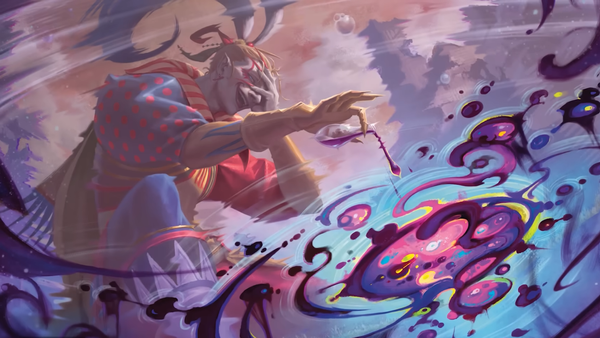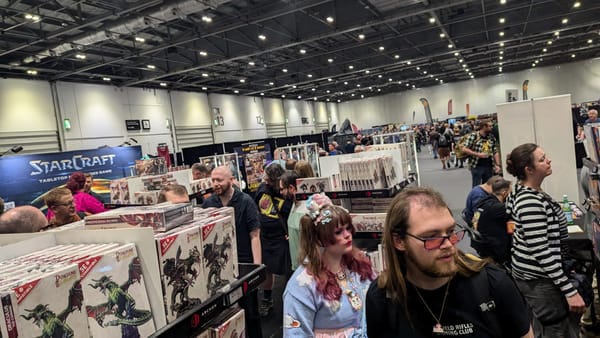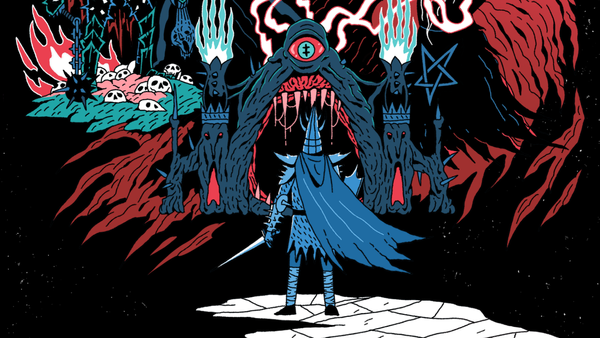What the fuck is actual play?
If it doesn’t come from the Critical Role region of Twitch, it’s just a sparkling improv game.

If you’ve been online at all in the last 10 years, you’ve probably come across some internet ephemera talking about a group of people (usually millennials) who roll dice and play pretend around a table. You might even be surprised to see that those YouTube videos and TikTok clips have millions of views. If you're not a member of the terminally nerdy faction that follows these shows with a cult-like zeal, you've also probably wondered, “What the fuck am I watching?”
What you are watching, my sweet summer child, is called actual play.
There's decades of history around the term actual play, or AP, but as far as the cyclical memory hole of the internet is concerned, actual play started in 2020…er, 2015. Maybe 2008? For the uninitiated, AP is when a group of friends stumble into a room with microphones and cameras (and maybe a set and some battlemaps) and start playing a tabletop roleplaying game—or a TTRPG if you’re nasty. You know, like Dungeons & Dragons? Then, like magic, they become instant internet celebrities, near god-like beings that are no longer beholden to the restrictions of this mortal plane. This is what’s called “The Matt Mercer Effect.”
An actual play is essentially two shows in one: the fictional story of the characters and the reality/game show of the actors playing the game. Think Drag Race meets Survivor, but with more snacks, less nature, and even less money.
The outcomes of the actors' decisions are determined by chance—in the case of D&D, the roll of the iconic 20 sided die. (Unless of course you fake the rolls, which everyone obviously does). In most other fiction, save the George RR Martins of the world (RIP GoT season 6-8), protagonists of stories often have “plot armor.” In less improvisational mediums such as film and TV, the outcomes of their actions are implied; a main character is very unlikely to die at any point in the story - because the episode still has 30 minutes left.
In an actual play, the death of a character could come at any moment as the result of a few poor rolls. The stakes are never low. None of the storytellers know what the outcome of their story will be. We, as the audience, watch in real time as players respond to circumstance and watch the consequences unfold.
Based on the wisdom of an anonymous internet user, if you do any sort of editing whatsoever, even just a little sound design, as a treat, then it's not actual play. If you use anything other than Rules As Written, it's not actual play. Actual play is only valid if it perfectly captures the clunky awkward nature of a home game with little to no entertainment value for people outside the table. However, if you have hundreds of hours of unedited footage, then the question (from the same well of anonymous wisdom) becomes, "Who actually wants to watch other people play D&D?"
But, let's be real, it’s probably scripted anyway. What’s more realistic: that a table of improv comedians or voice actors would write and memorize hundreds of hours of lines, or that they’re actually playing Dungeons & Dragons? I mean, come on, you mean to tell me these are real nerds? Ridiculous, nerds can’t be famous. It’s against the law.
There are a couple of big shows, like Critical Role and Dimension 20, or if you’re a little podcast freak, The Adventure Zone and NADDPOD; but that’s it. Nothing else. Don't go looking for it. It doesn't exist. I swear.
Hope that clears things up!





